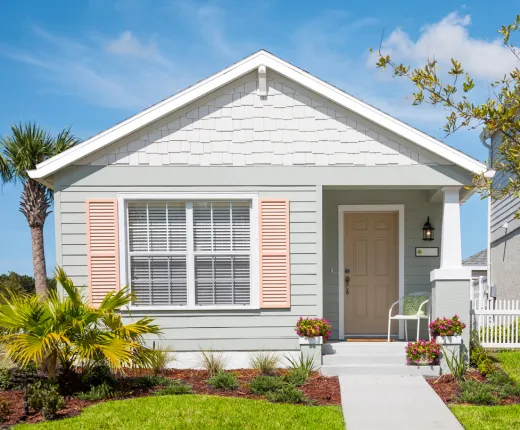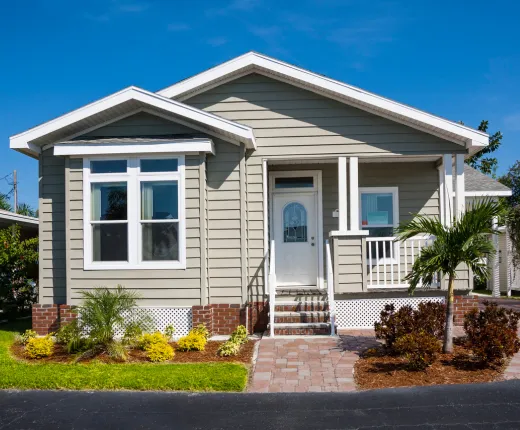A manufactured homeis a type of housing that is built off-site in a factory and then transported to its final location. These homes are constructed in compliance with federal building codes administered by the U.S. Department of Housing and Urban Development (HUD). Unlike traditional site-built homes, manufactured homes are designed to be easily transported and are typically placed on a permanent foundation. They come in various sizes and styles, offering a more affordable housing option for many individuals and families. While they share some similarities with modular or prefabricated homes, manufactured homes are distinct in their construction process and adherence to specific HUD standards.

Quality Control: Manufactured homes are built in a controlled factory environment, ensuring a higher level of precision and quality control compared to on-site construction. This can result in a more durable and well-constructed home.

Double and single-wide manufactured homes built to a national HUD building and safety standard and are permitted for VA financing. Each manufactured home built after June 15, 1976 is required to have a HUD label affixed to the exterior of each unit. If a HUD label cannot be located, an IBTS report will have to be completed to obtain all the identifying information. Manufactured homes built prior to are considered mobile homes and are extremely difficult to finance.
It is necessary for the manufactured home to be placed on a permanent foundation, which can come in various forms such as a solid concrete slab, sturdy cider blocks that are reinforced with tie downs, or a system of jacks and piers that are anchored into the ground with concrete. The foundation not only supports the weight of the home and its contents, but also provides stability and protection against natural disasters such as floods or wind.
Ownership in the land the manufactured home is affixed to needs to come with the property. This is also known as fee simple. If the manufactured home is in a park or on leased property, it’s categorized as chattel and ineligible for VA financing through Community First National Bank.
There isn’t a maximum acreage restriction when it comes to the VA loan. We’ve processed numerous transactions with 100+ acres.
Check if you qualify to buy a home or get a free quote for refinancing within minutes.

SmartVALoans.com is a service of Community First National Bank
VA Approved Lender, not a government agency.
Member FDIC Insured #35585 – Equal Housing Lender
NMLS ID #449196 NMLS Consumer Access Page


Community First National Bank
11900 W. 87th Street Pkwy, Suite 115
Lenexa KS 66215